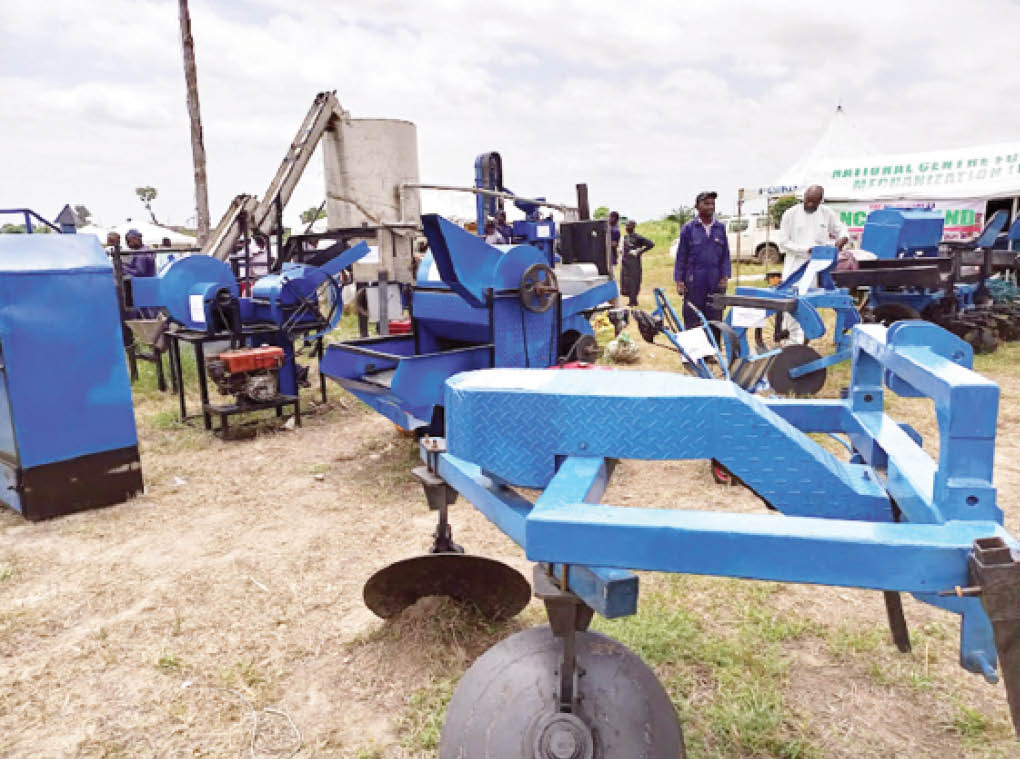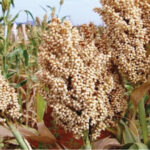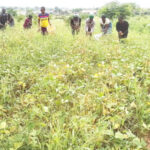Last week, technology developers and producers met at the 2021 edition of the National Agricultural Show organised by the Agricultural Foundation of Nigeria in collaboration with the Federal Ministry of Agriculture and Rural Development.
At the expo, the National Centre for Agricultural Mechanisation (NCAM), a federal government’s institute mandated to provide technology to farmers, showcased several devices that can help smallholder farmers to have access to small and medium-scale machines to reduce drudgery and hard labour.
- NIGERIA DAILY: Mambila: 100 Billion Naira Down the Drain
- Parallel congresses: Pressure on Buni to sanction Shekarau, Amosun, Aregbesola, others
Daily Trust caught up with Engr. (Mrs) Adamu Ade Christiana, an Assistant Director and Head of Extension Unit at the institute who led a team of other engineers to showcase what the institute has in stock for farmers to highlight some of these technologies and other issues.
She explained that “as a centre of excellence when it comes to mechanization, we have developed different machines based on the crops.
“We have complete processing machines for cassava, complete processing machines for rice, and palm oil processing. Then we have some field operation machines like planters. We have a seed planter. We have a cassava planter. We have a cassava up-rooter. We have a yam heap making machine. In fact, that one is newly developed.
“We also have machines for smoking fish. We have a multi-crop thresher; it is multi-crop in the sense that it can be used to thresh different crops. Also, we have a cowpea/groundnut sheller,” she said.
Speaking on the institute’s garri fryer, she said: “It is mechanical in nature and it is semi-automated in the sense that you can just stand and press the buttons to turn it off and also to set the temperature, it uses gas as a source of heat. It’s quite interesting.”
Answering a question on affordability, Engineer Christiana said the machines were quite affordable.
“But what we do advise is that people can come together as cooperative clusters. The cost of our machines depends on the cost of materials. We don’t produce the materials, we buy to develop the machines. So if the cost of the material comes down, definitely the cost of our machines will come down, but as of now, the machines are affordable.
“What we are trying to do again is that for some time now we have been moving from state to state. So far we have covered 22 states when it comes to extension and popularization of some of our technologies and based on the assessment of farmers who came back, who improve further. In fact, we have a mini rice thresher that you can put on your bike straight to your farm for you to thresh your rice,” she said.
She said farmers don’t need to pay for their machines 100 per cent upfront, adding that the “way we do it is that for some of these machines, we give discount; 30 per cent discount on any of the machines. If you’re coming to us to buy in the office, you have to make a first instalment payment of 70 per cent of whatever you are buying.”
Asked to comment on the durability of the machines they develop and the lifespan of technologies, the extension officer scored the centre’s technology high, stressing that for some of the technologies so far given to farmers the report has been positive.
“In fact, I make bold to tell people that any machine you buy from NCAM, if you complain, then it should have been after two to three years. When I was explaining the cassava peeling machine yesterday, I told the people that the abrasive surface takes four years before you will even think of changing it and it is stainless steel.
“I have some locations we have supplied to and they still use it up till now,” she explained.
On spare parts, the institute ensures that for every machine given to farmers, they have access to spare parts by just a phone call because the devices are locally designed and sourced.
A farmer, Abdullahi Ibrahim, who spoke with Daily Trust after going round to see the equipment the centre had on display, said these are the sort of machines Nigerian farmers can easily use and should be encouraged to have.
‘’Most farmers cannot afford to buy those heavy machines worth millions even if they come together in cooperatives. China started with small-hand-held machines before they progress to heavy ones. We must start from somewhere like this,’’ he said.

 Join Daily Trust WhatsApp Community For Quick Access To News and Happenings Around You.
Join Daily Trust WhatsApp Community For Quick Access To News and Happenings Around You.


